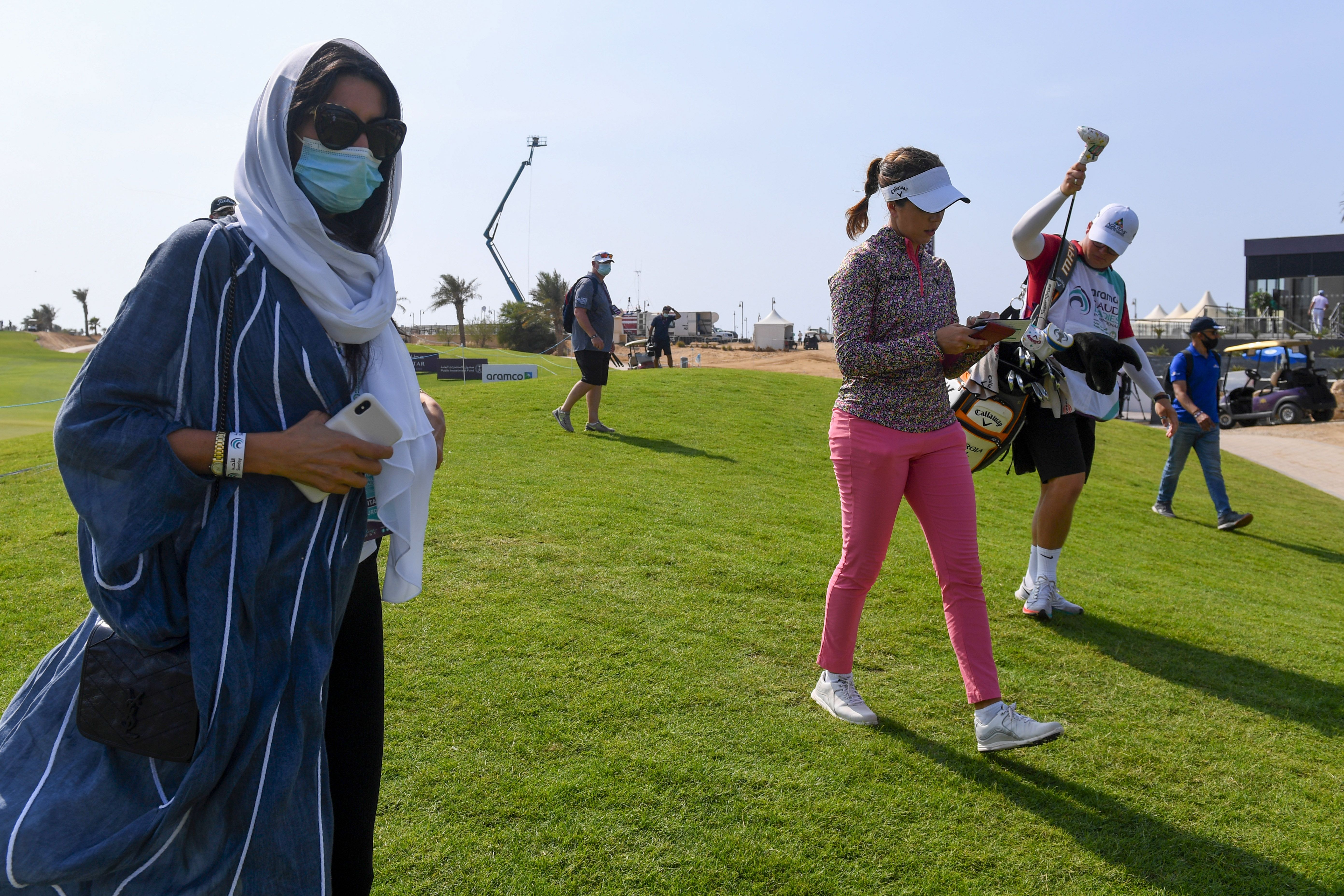The silence that greeted the Ladies European Tour playing in Saudi Arabia this week—at least relative to the censure faced by men who do the same—reflects two realities: the inattention given women’s golf in general and the LET in particular, and the principle that everyone bails water on a sinking ship.
The inaugural Saudi Ladies International in 2020 was the first professional women’s sporting event held in the kingdom. It’s $1 million prize fund commands attention on a tour where many purses are under $250,000, and where the woman ranked 10th on the money list has earned less than $160,000 this year. Compare that to the LPGA tour, where the equivalent paltry purses are five times as lucrative (many ten times so) and where 10th on the money list is good for $1.1 million.
Such gloomy financials means that a regime eager to use sports for a blackguardly agenda—say, to launder a reputation for human rights abuses and genocidal mania—could essentially buy the LET for a fraction of what one male superstar might demand to join a Super League. Thus, Saudi Arabia has invested $5 million in eight tournaments on the ’21 LET schedule, the same amount they offered men for one event, the Saudi International. Toss in the cost of lucrative appearance fees and chartered aircraft lavished on golfers with a Y chromosome, and the kingdom could make the LET a formidable entity. But that would require the recent Saudi interest in golf to be motivated by noble or even commercial objectives rather than simply distracting from unpleasant facts.
Alexandra Armas, the pragmatic CEO of the LET, went with those willing to pay her members, even if she’s determined to dress it up in platitudes about growing the game among Saudi women.
“The reaction we got last year blew everyone’s mind,” Armas said this week. “It just made sense to come back to do it again and to keep building on that and I think that is what we will be doing going forward. Golf Saudi has big plans for the women’s game. Although we’re only at the beginning, it’s been a fast trajectory.”
Nichols: Solheim Cup stars set to compete in Saudi Arabia, where women fight for basic freedoms
Executioner’s blades have a pretty fast trajectory too, but Armas didn’t detour into that cul-de-sac. However, she did go on to talk up gender equality, a dissonant moment that called to mind Adlai Stevenson’s famous crack about Richard Nixon chopping down a redwood then mounting the stump to give a conservation speech.
Even if the LET’s leadership can’t afford to look beyond money, some players can. I asked Meghan MacLaren, twice a winner on the tour, why she skipped the Saudi stop, as she did last year too. “It doesn’t take a lot of research to infer what the purpose of these events, and others across all sports, truly is,” she replied, referencing the widespread accusations of Saudi sportswashing. “I would like to be wrong but while that remains the case, being a part of it makes me incredibly uncomfortable. It doesn’t fit with the values I have.”
Professional sport has always been an enterprise marked by unsavory alliances and deals with the despicable. That’s especially true in its more gritty and underfunded precincts, where few athletes can afford to stand on principle because principles don’t pay rent. The Saudis understand that calculus. When it comes to the LET, they depend on it.
”It is apparent that things aren’t slowing down, particularly in women’s golf,” MacLaren said. “Whatever any of our thoughts on that are, it is not a black and white issue, particularly when it starts to affect such a big part of players’ careers.”
MacLaren’s moral compass points us to the key factor that differentiates women who compete in Saudi Arabia from men who do the same, and even moreso from the guys who would sign on to a breakaway Super Golf League concept: need versus greed.
There are 166 players on the official LET money list for 2021. With just two events left in the season, 97 of those women have failed to earn €20,000 (or about $23,000) in prize money. A solo 45th place finish this week on the PGA Tour pays more, and plenty of guys competing at Mayakoba will burn as much in private jet fuel before clearing Mexican airspace. So is it reasonable to apply the same standard to golfers who can’t afford to make a moral decision on where to play as we do to those who can?
It’s pointless to fault LET members and executives for pursuing pitifully scarce cash, or the Saudis for their opportunism. And it’s simplistic to argue that a tour which can only survive on financing by despots is unworthy of saving, or that LET members ought to just play better and make it to the LPGA tour. The most effective defense against this Saudi sportswashing lies in replacing the current splintered, vulnerable model with a unified, global women’s tour and robust feeder circuit. In short, hastening what has long been economically inevitable. The creation of such a tour should be aided by the logistical, financial and commercial might of the PGA and European tours.
The Saudis are vowing to spend vast sums of money to force a radical realignment in men’s golf. Their $5 million in loose change should—albeit unintentionally—help spur an altogether more positive one in the women’s game too.

